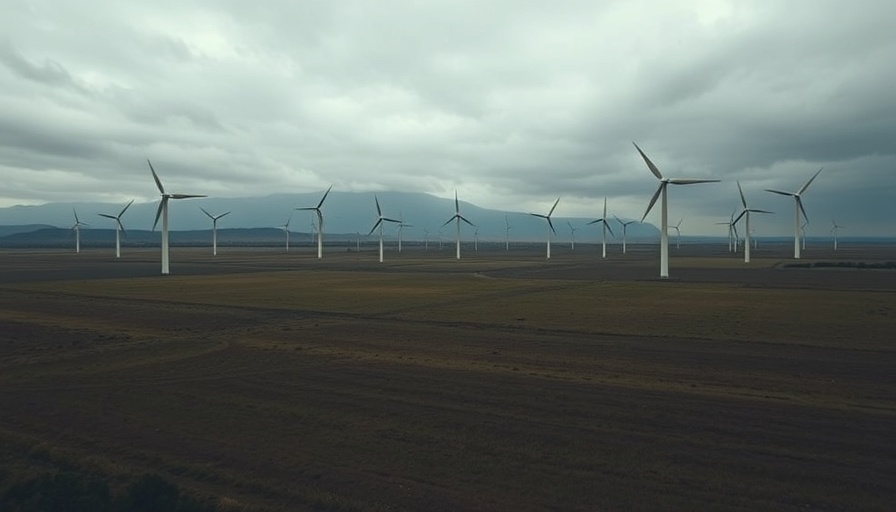
The Winds of Change: Revitalizing Texas' Communities
Texas is no stranger to the wind, but perhaps nowhere is the narrative more pronounced than in the rural expanse of the Rio Grande Valley. Here, the Los Vientos Wind Farm emerges as a beacon of rejuvenation for the small farming community of Lyford, once plagued by economic decline. With 426 towering turbines, Los Vientos is not just the largest wind farm in Texas; it is a stark reminder of how resource management can transform local economies.
Harnessing Nature for Economic Growth
The origin of this wind energy boom can be traced back to the harsh realities faced by local farmers. As stagnant employment opportunities existed and youth sought greener pastures, the establishment of Duke Energy in 2012 marked a turning point. Their initiation of wind farm construction allowed for the lease of farmland, yielding new revenue streams for farmers who, stifled by unpredictable weather conditions, now see financial respite through alternative energy. Glenn Wilde, a local farmer, articulates the evolving landscape: “This crazy wind ought to be worth something,” he muses, a sentiment echoed by many as wind energy provides an economic lifeline to struggling agricultural ventures.
Community Impact and Local Employment
The ripple effects of this wind energy endeavor extend brilliantly beyond just monetary gain. Rick Salinas, a deeply-rooted member of the Lyford community, highlights how local school districts have benefited significantly from new property tax revenue generated by the wind farms. Meanwhile, Deriva Energy, which took over in 2023, also actively employs local technicians, contributing to job creation amid declining agricultural workforces. This gradual transition to renewable energy heralds new possibilities for local youth, offering training in wind energy technologies compatible with current industry needs.
Future Trends in Wind Energy Adoption
The influence of the wind farms could redefine energy production trends in Texas and beyond. As more projects instantiate in the region, this places the state at the forefront of a national movement towards sustainable energy. The Texas Public Utility Commission estimates that renewables could power a large portion of the state if investments continue. Looking ahead, it is plausible that Texas will not only lead in wind energy production but will foster innovative solutions that encourage larger states to follow suit.
Concerns and Counterarguments
Despite the apparent benefits of wind farms, concerns linger regarding their impact on the community’s cultural landscape. Some residents like Glenn Wilde resist the encroaching turbines on the horizon, feeling an overwhelming sense of loss in their once vast open spaces. However, careful discussions and planning involving stakeholders could alleviate some of these concerns, ensuring that the transition to renewable energy fosters both economic and cultural preservation.
Common Misconceptions About Wind Energy
It's crucial to highlight and dispel various myths surrounding wind energy, particularly within communities like Lyford. Common misconceptions often include notions that wind turbines are unsightly or that they can harm local wildlife. In reality, significant advancements in turbine technology now include designs that minimize their ecological footprint and enhance landscape aesthetics. Moreover, thorough studies indicate that wind energy requires substantially less water than traditional fossil fuel-based energy sources. Transitioning to wind power thus not only supports economic recovery but also propels the community towards sustainable practices.
Conclusion: A Call to Embrace Renewable Energy
The evolution of the wind farm in Willacy County encapsulates a broader narrative about renewable energy's place in rural America. Not only does it offer economic revitalization, but it also educates communities about sustainability and technological opportunities in energy. Business leaders are encouraged to view wind energy as a viable action plan, integrating sustainable practices into their corporate visions that now extend beyond profitability—aiming instead for a balance between economic growth and environmental stewardship. Embracing wind energy is not just a choice; it is a strategic move towards a resilient, redefined economy in Texas and beyond.
 Add Row
Add Row  Add
Add 




Write A Comment